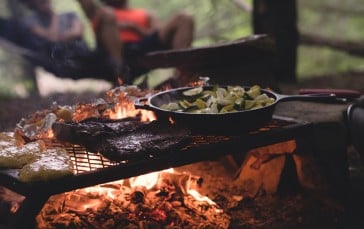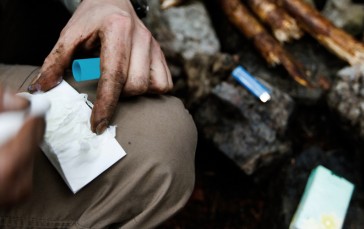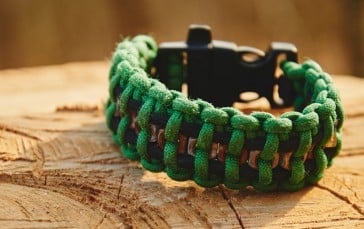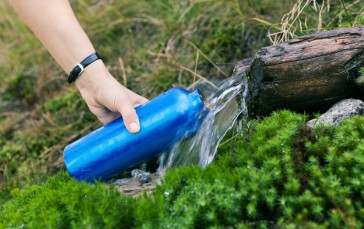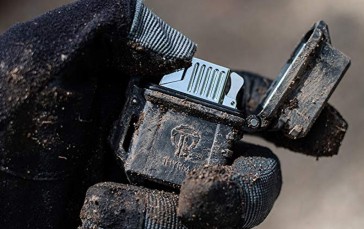Survival Skills For Children
As fathers, it is imperative that we make certain that our sons and daughters are always safe and that they become responsible and self-sufficient adults. For them to do that, we have to make sure they are able to take care of themselves. We have to prepare them and teach them to handle any possible situation, some of which we can never anticipate or truly prepare for. As a starting point for helping them, here are fifteen essential survival skills you should teach your child starting today.

1. Starting or Building a Fire
Teaching your child how to safely start a fire is at the top of our list of essential survival skills. Fire keeps us warm and allows us to cook our food. If your child is ever faced with an emergency such as a natural disaster or a prolonged power outage, it is vital that he or she knows how to keep themselves warm and prepare food that is safe to eat.
Being able to start a fire will enable them to do both of these. Besides keeping them warm and cooking their food, a fire can also provide a method of summoning help should your child become lost in the wild.
Rescuers can easily spot smoke rising from a fire and focus on that particular area to find your child. There is no excuse for not teaching your child this survival skill.
2. Finding or Creating Safe Drinking Water
Children pretty much assume that all water either comes from a water bottle purchased at the store or comes straight out of the faucet at home. As far as they know, water is perfectly safe to drink.
Parents and teachers even preach to them to drink enough water each day, since it is so good for them.
In an emergency, natural disaster, or if they would get lost in the wilderness, children, without guidance, would probably think that any water they found would be safe to drink. This couldn’t be farther from the truth.
Water from many natural resources can make them sick due to high levels of bacteria and microorganisms. Teach them several methods of treating water, such as boiling it, to make sure that they can always manage to have safe drinking water during an emergency situation.
Many of the methods of treating water are very simple to understand and can be fun to experiment with as you are teaching them.

3. Handling and Using a Knife
Every child should be taught how to carry and hold a survival knife, both for their own safety and for use in everyday tasks. In an emergency situation, a knife may be the only tool available for your child to use.
If they are comfortable using knives and if they know various tips and tricks for using a knife as survival gear, they will be in a much better position than if they were unfamiliar with such tool.
The knife may be the only item they have to help them fend off a wild animal or other threat in the wild, or even while alone at home. Make sure to teach them all the critical knife skills and emphasize how to handle and store a knife safely.
4. Finding or Building Shelter
You should definitely teach your child the importance of finding or building a shelter in various emergency situations. Should your child get lost in the wild, finding shelter can certainly mean the difference between life and death, as a shelter will provide respite from harsh weather conditions and will safety from wild animals.
You should teach your child how to construct a shelter if they cannot find a naturally occurring one. Branches and leaves can easily be formed into a rudimentary shelter that will provide just enough protection to get your child through a cold night alone in the wild.
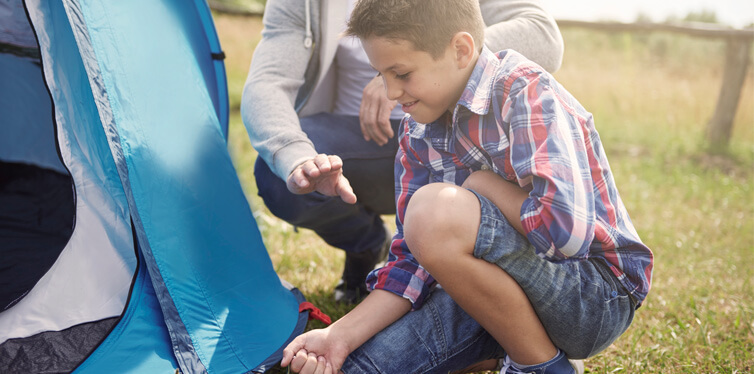
5. Gardening and Finding Food
There may be a point in your child’s life where an adequate supply of food becomes unavailable for one reason or another. Perhaps there is a natural disaster, terror attack, or breakout of war, etc.
If your child knows how to grow his or her own food, they will be well ahead of many other people who are in the same situation. With a few lessons on what, when and how to plant, children should be able to grow almost any fruit or vegetable they want, from beans to tomatoes to berries.
You should also teach your child how to gather wild plants and fruits as well. If there ever comes a time where your child gets lost in the wild, whether it be a forest, near a lake, or a mountainous area, if they know what is safe to eat and where to look for it, they will be able to survive for much longer on their own then if you did not teach them these essential survival skills.
6. Farming
Similar to the skills related to gardening and finding food, it may prove to be invaluable to teach your child about farming, which will give them an understanding of how animals can be used for food and even clothing.
These lessons are vitally important, as there may come a time where they need to know how to get food, such as milk, eggs, or meat on their own.
Simply knowing what it is that animals can provide is not enough, we need to teach them how to make things as well; simply being able to find an egg isn’t enough, your child will need to know how to prepare it in a safe manner to avoid illness.

7. Fishing
Fishing is one of the essential skills you can teach your children, especially if you live near bodies of water or frequently vacation in areas surrounded by water.
Teaching your child how to fish will give them a great chance of always having an available food supply, even during an emergency situation. Similar to the skills listed above, fishing is a relatively easy skill to teach, and it can prove to be a lifesaver as well.
Plus, there aren’t many natural foods that have as many beneficial nutrients as fish do. Fishing is definitely a survival skill all children should learn, and the teaching process for this skill can provide hours of fun time together with your child.
8. Self-defense
Self-defense skills are definitely skills that your child can find to be essential to their survival right now. By enrolling your child in a self-defense class, or by demonstrating some techniques, you will enable your child to defend themselves in virtually any given situation.
You hope and pray that your child will never need to use these skills, but by having them, your child has a much better chance of coming out of a crisis situation unharmed.
Children who have learned self-defense skills will also have higher self-esteem and a greater amount of confidence, which should benefit them in many ways throughout their daily lives.
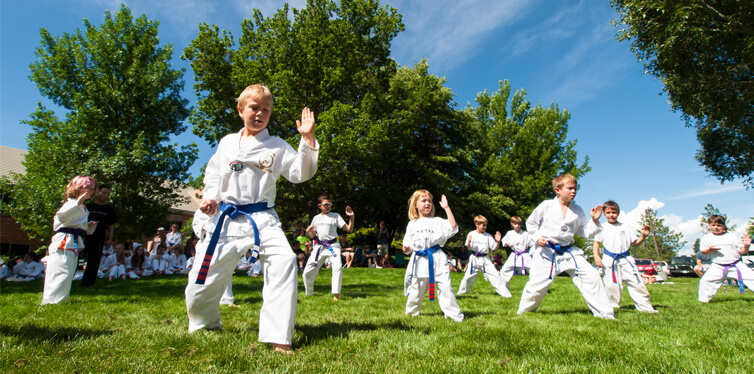
9. Self-Awareness
Self-awareness may seem like a difficult skill to teach your child, and it is definitely a skill that you will not teach one time and then forget about it. You should be constantly teaching your child through the practical experiences you have each and every day.
Children who are more aware of their surroundings are much better equipped to deal with or avoid situations that put them in danger.
Simply showing your kids what things to watch out for in different scenarios will prepare them for the time that they would need to react. You need to teach them how to be safe from other people. You need to teach them how to listen and watch their surroundings, always being vigilant of what is going on around them.
10. Reading a Map
Not only has teaching your child how to read a map proved to be an essential survival skill, but also learning about maps can help your child improve their spatial thinking, as maps can help children picture where objects, places, cities, and countries are in relation to one another.
Simply put, maps can help them figure out their place in the world. Should your child ever get lost, just having knowledge of where they are in the world, even if they do not have a map, can give them just what they need to get themselves out of the situation.
Especially today, children may just assume that their cell phones would be able to get them somewhere, but being out of range or without a charged battery make it essential that they know how to navigate with a map and a compass.
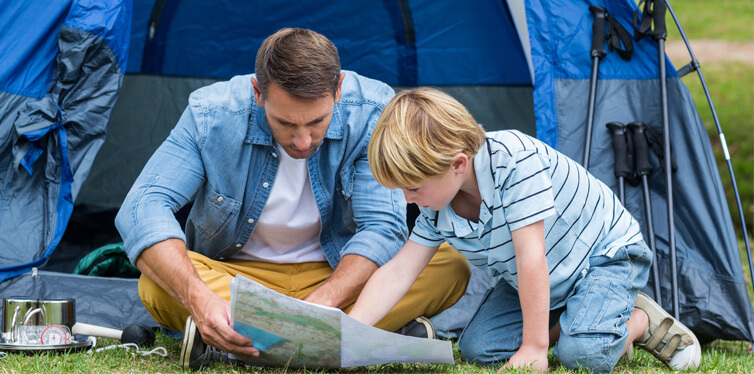
11. Basic First Aid
Teaching your child the skills of basic first aid and building the best first aid kit may prove to be more important than any other skill on this list. Your child will undoubtedly have his or her share of cuts, bruises, and other minor injuries, but even a small cut can become infected if it is not treated appropriately and quickly.
If there would ever be a reason that you wouldn’t be there to take care of the minor injuries, knowing basic first aid skills could prove to be life-saving.
If you do not feel comfortable teaching your child basic first aid skills, various agencies, such as the American Red Cross offer programs that are tailored to children and help them prepare for various situations where basic first aid skills would be needed.
12. Knowing What to Do in Bad Weather
You should teach your child what to do if bad weather is approaching, whether they be at home or away from home.
Explain to your child what to do if they are home alone and a bad storm is coming. Tell them to go to the basement and stay away from windows. Teach them to always protect their head and eyes.
Explain to them what they should do after a storm has passed and there is damage. Always assume that they are home alone when disaster strikes, as this way they will learn to become independently safe and will know that they can handle a situation on their own if need be.
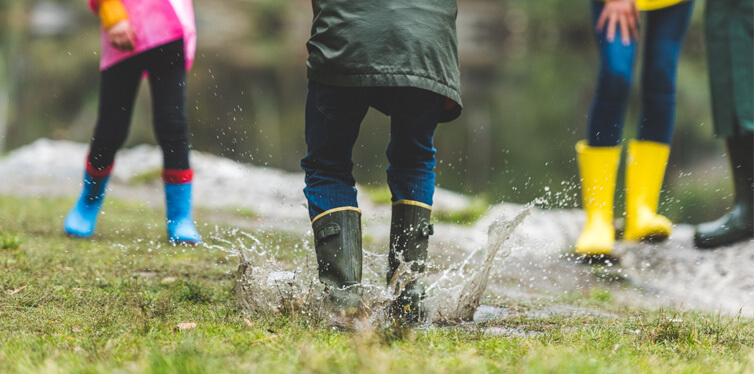
13. Teach Them to Swim
With drowning being the third most common form of accidental death in children, learning to swim truly is an essential life skill that every child should learn as early as possible.
How many survival skills are as fun to learn for kids? It is also a skill that is not easily forgotten once learned.
Knowing that your child can swim will give you some peace of mind whenever your child goes into a swimming pool or gets in a boat on a lake. If an emergency would occur, your child will know how to survive.
Teaching them to swim? Check out our swimming gifts guide.
14. Teach Them to Climb a Tree
Kids will be kids. Undoubtedly, left to their own devices, most kids will attempt to climb the tallest tree in the yard.
While your inclination may be to tell them to stop climbing and get down from the tree, you really should embrace the moment instead, and teach them how to climb safely, which is really important, as this can help eliminate a potential accident risk.
If your child is going to climb a tree, they might as well know the proper way to do it.
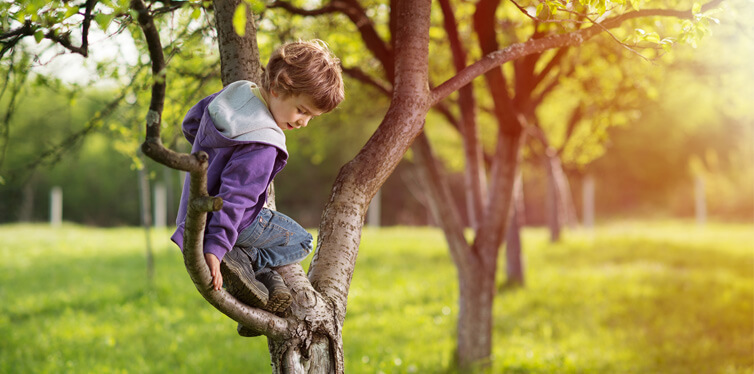
15. Teach Them How to Answer the Door
You should always have a talk with your child about what to do should they be home alone, and somebody would come and knock on the door or ring the doorbell. Until taught differently, most children will readily open the door when they hear a knock.
As soon as the door is opened, it leaves those in the home vulnerable to possible harm. Explain to your child that if they are home alone, they should never open the door.
They should also be taught on how to keep windows locked and how to close blinds or curtains. If they are left home alone, they need to have a way to contact you immediately should an emergency situation arise.
Make your child independent and autonomous while they are still as young as possible. Then as emergencies arise, their newfound survival training can prove to be a lifesaver.



